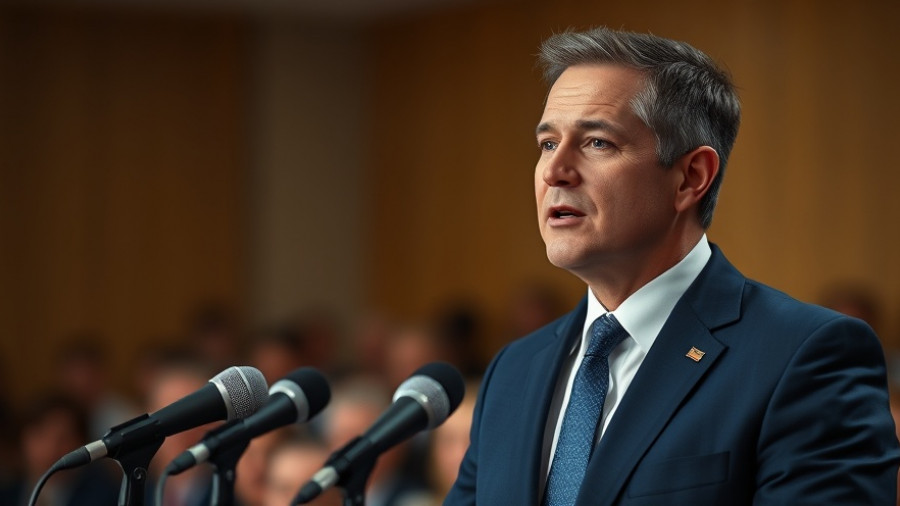
The Holiday Travel Crisis Looming Over America
The impending government shutdown in the United States poses significant threats to holiday travel as officials warn of long security lines and potential flight delays during the busy Thanksgiving season. Senator JD Vance, after a meeting with major airline executives, predicted dire consequences for millions of travelers if the government remains closed into late November. Unpaid aviation staff could lead to wide-scale disruptions, triggering an upheaval in what many anticipate to be one of the busiest travel periods of the year.
Aviation Industry's Quandary: Voices of Authority
During the recent White House meeting, leaders from United Airlines, American Airlines, and other aviation stakeholders voiced their urgent calls for Congress to pass a stop-gap funding bill known as a Continuing Resolution (CR). Their concern centers on the lack of compensation for approximately 50,000 Transportation Security Administration (TSA) agents and 13,000 air traffic controllers, many of whom are likely to call in sick due to financial pressure. United's CEO, Scott Kirby, articulated the sentiments of the industry, saying that prolonged closures will crash efficiency, bringing chaos to airports already burdened by staffing shortages.
Historical Context: Comparing Past Shutdowns
Previous government shutdowns highlight the vulnerabilities of travel during such crises. For instance, the 35-day shutdown from December 2018 to January 2019 led to considerable disruptions in air travel. At that time, TSA officers faced similar pay issues and many opted to either stay home or seek additional sources of income to compensate for lost wages. This resulted in delayed flights and missed connections for countless travelers, setting a concerning precedent as history threatens to repeat itself.
Potential Economic Impact: The Bigger Picture
The current crisis is far from an isolated issue, with the U.S. Travel Association estimating that the shutdown has already diminished the travel economy by $1 billion each week. This loss ripples through the economy, amplifying concerns about an already troubled recovery journey amid surging inflation rates, rising unemployment rates, and discussions around economic recovery targets. As millions prepare for what should be a joyous season of Thanksgiving, the specter of government paralysis threatens not just travel plans but the national economy.
Wider Implications: From Welfare to Workforce
Alongside the challenges faced by travelers, the shutdown is poised to inflict severe cuts on essential programs. For example, starting November 1, 42 million Americans enrolled in the Supplemental Nutrition Assistance Program (SNAP) will not receive their benefits. The welfare crisis further complicates an unstable economic environment while putting additional pressure on local and state administrations, who are scrambling to develop contingency plans to support those affected.
Looking Ahead: The Political Battlefield
The ongoing shutdown drama has entrenched partisan divides and shifted the focus towards the upcoming national elections and broader government policies. Especially in an election year, public perceptions about government efficacy and social safety measures will no doubt influence electoral outcomes. The Democratic Alliance and EFF (Economic Freedom Fighters) can capitalize on citizens' frustrations towards perceived governmental ineptitude. As travel conditions worsen and basic services dwindle, the political ramifications could be profound.
Call to Action: Stay Informed and Prepare for Travel Disruptions
As the situation continues to develop, it is essential for travelers to stay informed about flight statuses and possible delays. Keeping abreast of any congressional developments is crucial for those planning trips in the coming months. Empower those around you by sharing insights and tips on how to manage potential disruptions effectively.
 Add Row
Add Row  Add
Add 




Write A Comment